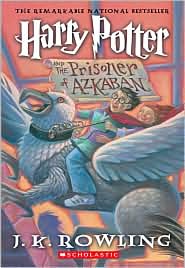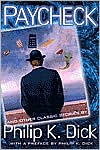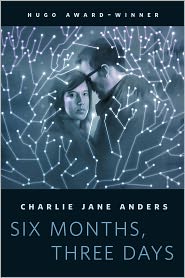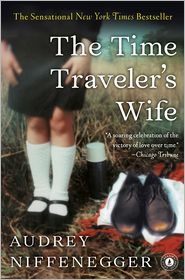6 Time Travel Loops, Predestination Style
 Today, the Ethan Hawke-starring time travel flick Predestination hits theaters. Like many time travel movies, it pays homage to the old-school Robert A. Heinlein short story “—All You Zombies,” which established many of the tropes of the genre, but in this case at least, it’s justified: it’s actually a loose adaptation of Heinlein’s award-winning tale. Without ruining too much of the story (or potentially, the film) “—All You Zombies” features a character who has loop-de-looped through time so often that he might be related to himself in a myriad of ways.
Today, the Ethan Hawke-starring time travel flick Predestination hits theaters. Like many time travel movies, it pays homage to the old-school Robert A. Heinlein short story “—All You Zombies,” which established many of the tropes of the genre, but in this case at least, it’s justified: it’s actually a loose adaptation of Heinlein’s award-winning tale. Without ruining too much of the story (or potentially, the film) “—All You Zombies” features a character who has loop-de-looped through time so often that he might be related to himself in a myriad of ways.
If you’re a sucker for a good time twister, here are six more books and stories that sport paradoxical shenanigans. (BEWARE! I’ve traveled back in time to warn of spoilers below.)
Harry Potter and the Prisoner of Azkaban (Harry Potter Series #3)
Harry Potter and the Prisoner of Azkaban (Harry Potter Series #3)
By
J. K. Rowling
Illustrator
Mary GrandPré
In Stock Online
Hardcover $29.99
Harry Potter and the Prisoner of Azkaban, by J.K. Rowling
Who teaches Harry Potter how to make a Patronus? Harry Potter does. Though time travel isn’t used extensively in the Potterverse, Rowling does employ an information paradox in the third Potter book when Harry and Hermione use a time-turner to prevent a tragedy. Its a great sequence, even if we do have to pretend time turners don’t exist for the rest of the series to make sense.
Harry Potter and the Prisoner of Azkaban, by J.K. Rowling
Who teaches Harry Potter how to make a Patronus? Harry Potter does. Though time travel isn’t used extensively in the Potterverse, Rowling does employ an information paradox in the third Potter book when Harry and Hermione use a time-turner to prevent a tragedy. Its a great sequence, even if we do have to pretend time turners don’t exist for the rest of the series to make sense.
Paycheck And Other Classic Stories By Philip K. Dick: And Other Classic Stories
Paycheck And Other Classic Stories By Philip K. Dick: And Other Classic Stories
By
Philip K. Dick
,
Steven Owen Godersky
Introduction
Roger Zelazny
Paperback
$10.43
$14.95
“Paycheck,” by Philip K. Dick
The unnamed protagonist of this short story wakes up with no memory of having taken a certain job so hardcore, it required a memory erasure once his contract was up. Philip K. Dick was fairly obsessed with people’s memories being tampered with (“We Can Remember it for You Wholesale,” the basis for Total Recall, being a prominent example), and when he mashed-up this tendency with time-travel, he created a classic. Though it was loosely adapted into a Ben Affleck action vehicle, the best on-screen tribute to this story is probably the recent Doctor Who episode “Time Heist.”
“Paycheck,” by Philip K. Dick
The unnamed protagonist of this short story wakes up with no memory of having taken a certain job so hardcore, it required a memory erasure once his contract was up. Philip K. Dick was fairly obsessed with people’s memories being tampered with (“We Can Remember it for You Wholesale,” the basis for Total Recall, being a prominent example), and when he mashed-up this tendency with time-travel, he created a classic. Though it was loosely adapted into a Ben Affleck action vehicle, the best on-screen tribute to this story is probably the recent Doctor Who episode “Time Heist.”
The Stars My Destination
The Stars My Destination
In Stock Online
Paperback $17.95
The Stars My Destination, by Alfred Bester
Self-induced teleporting, or “jaunting” is a common practice in this Alfred Bester novel, though the main character—Guly Foyle—develops a version of traversing space that also cuts through time. Discovering how his abilities affect the linear timeline the reader experiences is something you’ll have to read the book to fully enjoy.
The Stars My Destination, by Alfred Bester
Self-induced teleporting, or “jaunting” is a common practice in this Alfred Bester novel, though the main character—Guly Foyle—develops a version of traversing space that also cuts through time. Discovering how his abilities affect the linear timeline the reader experiences is something you’ll have to read the book to fully enjoy.
Slippage: Previously Uncollected, Precariously Poised Stories
Slippage: Previously Uncollected, Precariously Poised Stories
Paperback $17.99
“Go Toward the Light,” by Harlan Ellison
If you’re every wondering how the oil burned for so long during the very first Hanukah, a few professional time travelers might have the answer for you. Found in the short story collection Slippage, this one is a full-on predestination paradox, as the time traveler becomes an essential part of the history he’s simply trying to investigate.
“Go Toward the Light,” by Harlan Ellison
If you’re every wondering how the oil burned for so long during the very first Hanukah, a few professional time travelers might have the answer for you. Found in the short story collection Slippage, this one is a full-on predestination paradox, as the time traveler becomes an essential part of the history he’s simply trying to investigate.
Six Months, Three Days: A Tor.Com Original
Six Months, Three Days: A Tor.Com Original
In Stock Online
eBook $1.99
“Six Months, Three Days,” by Charlie Jane Anders
Less about time travel than a form of precognition that’s as good as a visit to the future, this Hugo-winning short examines how our dreams for the future can contradict with reality, creating our own personal paradoxes. When a man and woman who both can see versions of the future try to date, cause and effect goes wibbly-wobbly pretty quickly. This story by io9.com’s resident sci-fi guru is the contemporary standard for precognition and information paradox stories. Essential.
“Six Months, Three Days,” by Charlie Jane Anders
Less about time travel than a form of precognition that’s as good as a visit to the future, this Hugo-winning short examines how our dreams for the future can contradict with reality, creating our own personal paradoxes. When a man and woman who both can see versions of the future try to date, cause and effect goes wibbly-wobbly pretty quickly. This story by io9.com’s resident sci-fi guru is the contemporary standard for precognition and information paradox stories. Essential.
The Time Traveler's Wife
The Time Traveler's Wife
In Stock Online
Paperback $18.99
The Time Traveler’s Wife, by Audrey Niffenegger
You may have seen the movie, which is one of two times Eric Bana has played a time traveler and one of three times Rachel McAdams has been a time traveler’s girlfriend, but the novel is where it’s at. Because Henry can’t really control his biologically-triggered time jumping, occasionally a future version of himself will be forced to “act” as his past self. Keeping straight where (when?) Henry’s “original” memories of these events originated will poke at your brain even as you find yourself wrapped up in a most unusual decades-spanning romance.
What’s your favorite time-travel paradox?
The Time Traveler’s Wife, by Audrey Niffenegger
You may have seen the movie, which is one of two times Eric Bana has played a time traveler and one of three times Rachel McAdams has been a time traveler’s girlfriend, but the novel is where it’s at. Because Henry can’t really control his biologically-triggered time jumping, occasionally a future version of himself will be forced to “act” as his past self. Keeping straight where (when?) Henry’s “original” memories of these events originated will poke at your brain even as you find yourself wrapped up in a most unusual decades-spanning romance.
What’s your favorite time-travel paradox?





